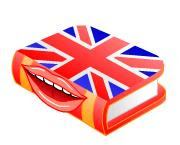
This is Wenlock, the official mascot for the London 2012 Olympic Games.
How did he get his name?
Wenlock’s name is inspired by Much Wenlock in Shropshire. In the 19th century, Baron Pierre de Coubertin was invited there to watch the “Much Wenlock Games” which were inspired by the Olympic Games of ancient Greece. De Coubertin was inspired by the Wenlock Games too, and went on to found the modern Olympic movement.
Wenlock’s most distinctive features
The headlight is inspired by the lights on London’s black taxis.
The shape of the front of his head is based on the shape of the Olympic Stadium roof.
His eye is a camera lens, capturing everything he sees.
The three points on his head represent the places on the podium where successful athletes stand to receive their medals.
The bracelets on his wrists are friendship bands, in the colours of the five Olympic rings.

This is Mandeville, the official mascot for the London 2012 Paralympic Games.
How did he get his name?
Wandeville’s name is inspired by Stoke Mandeville in Buckinghamshire ... the birthplace of the Paralympic Games.
On the same day as the Opening Ceremony of the London 1948 Olympic Games, Sir Ludwig Guttmann held his own sport competition in Stoke Mandeville for World War Two soldiers with spinal injuries.
It was no coincidence – Sir Ludwig dreamed of a “parallel Olympics” for athletes with disabilities. The Stoke Mandeville Games grew and grew until they became the Paralympic Games.
Mandeville’s most distinctive features
The headlight is inspired by the lights on London’s black taxis and it helps him to see where he’s going.
His eye is a camera lens, capturing everything he sees.
His head is aerodynamic, like a helmet and in the three Paralympic colours.
His tail and hands are aerodynamic, which is really important as he’s a “spirit in motion”, always rushing around, constantly trying to beat his personal best. The personal best timer on his wrist helps him to keep track.


















































































